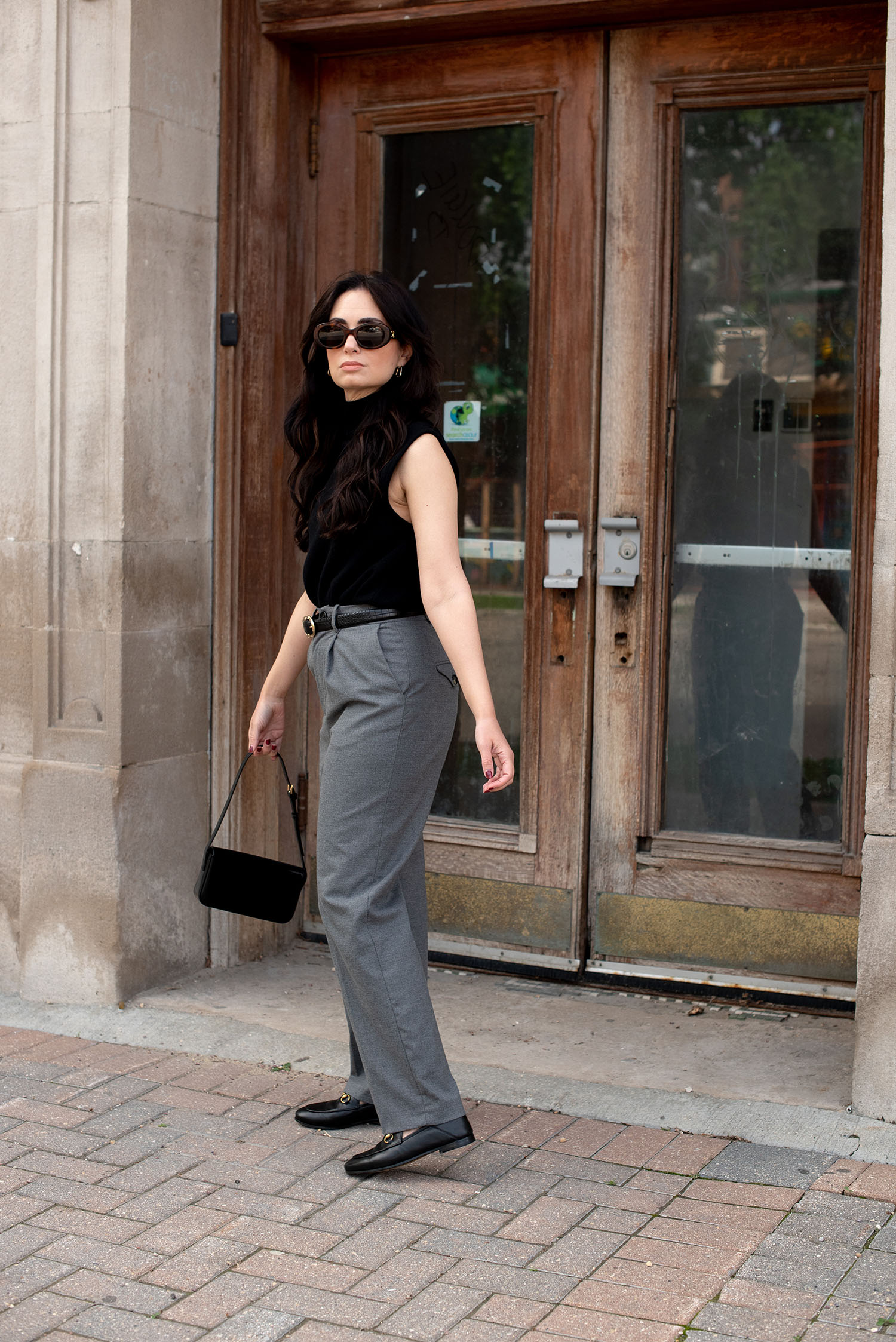
Mango trousers
Gucci loafers
Mango belt
Celine sunglasses
Celine handbag
Modu Atelier earrings (c/o) (similar)
Location: Osborne Village – Winnipeg, Manitoba
When it first debuted, I loved watching The Big Bang Theory. I’ve never owned a traditional TV, and don’t think I watched more than a handful of episodes of anything from the time I was thirteen until I turned twenty. (I blame Ian for introducing me to King of the Hill. My TV consumption went up substantially after that.) There are some jokes I still remember vividly, and some one-liners I still repeat, including the Sheldon Cooper special, “Would you like to do the math?”
In my teens, I avoided math even more actively than I avoided TV shows. When my self-confidence dipped around my twelfth birthday, a common phenomenon that affects many young girls, my confidence in my ability to add and subtract took a dive, too. Math was so sure of itself when I wasn’t sure of anything. I couldn’t grasp the fact that there was only one right answer to every question, when in every other area of my life, the right answer constantly shifted and changed as I acquired knowledge. So I over-thought and over-analysed every math problem I attempted, the same way I did everything else, which was an incredibly effective strategy if my goal was too mostly do the work right but still end up in the wrong place – something that happened to me too often, not just in math but in my teenaged life (but especially in math.)
I don’t know that I’ll ever truly be confident in my math skills. But I know now that my lack of confidence isn’t actually reflective of a lack of capability. I can do the math, if I need to. And more and more, I find myself becoming the kind of person who wants to. We are a product of our environment and experiences, so the countless hours I’ve spent poring over Excel spreadsheets in the past four years is, I have no doubt, a major contributing factor. The more I learn about numbers and data, the more I come to understand how easy it is to oversimplify them. Oversimplification makes great sound bites. It’s the stuff of many smart-sounding but deeply flawed news article titles and Tweets… two things that many, many people take at face value and believe as truth.
And when I interact with those people, I feel constantly compelled to do the math. Once, years ago, my creative writing teacher gave me written feedback on a project. “You have a healthy dose of skepticism,” he told me. “Good. Keep it.” I didn’t realise how closely I’d followed his advice until recently, but I can see it now, especially at work. I’m quick to step in and try to calm anyone who uses words like collapse or catastrophe. The urge to support my arguments with numbers to prove my point is shockingly strong. Usually, I can resist the impulse to show my work – but I always do the math to make sure I’m right.
In most areas of my life, there still aren’t any questions with just one right answer. My perspective continues to shift and change as I acquire knowledge, and I feel comfortable with that now. If we can continue to learn and accept new ideas as we grow older, especially if they’re diametrically opposed to our previous ones, it proves we’re still evolving (and the opposite of evolving is stagnating, an unattractive concept in any context.) But numbers don’t lie. There is strength in them, but also truth. And in the post-fact age, the truth isn’t just important, it’s sacred. So I do the math, because most often, that’s how we find it.
I adore this outfit so much, so classy!!
Miki x
https://www.littletasteofbeauty.com/